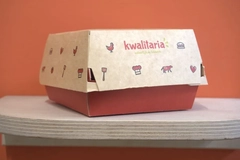
A new study has investigated the migration of bisphenol A (BPA) from PET bottles into Iranian yogurt drink doogh under varying storage conditions and assessed the related health risks. The research aims to provide evidence for manufacturers, retailers, and consumers on dairy packaging safety and storage management.
The researchers analyzed three commercial doogh brands stored for seven to 60 days under different temperatures and light exposures, including direct sunlight and shaded conditions. BPA concentrations were measured using solid-phase extraction followed by high-performance liquid chromatography.
The findings published in Scientific Reports revealed that higher storage temperatures, longer storage durations, and direct sunlight exposure increased BPA migration into the beverage. While BPA concentrations varied between brands, likely due to differences in packaging materials, doogh formulations, or production processes, the overall impact from storage conditions was consistent.
These results should not make us too comfortable, because although based on the findings of this study, doogh itself likely contributes a relatively small share to the total daily BPA intake of most individuals, this share may be significant in people with high consumption of this beverage or other packaged foods,” the researchers say.
BPA-free is vital
The study finds that while current BPA exposure levels remain within the threshold limit in all tested scenarios, poor storage practices can elevate health risks. The authors recommend food-grade packaging materials free from BPA and improved education regarding storage practices.
“This issue can be of greater importance in vulnerable populations. Although this risk is still below the hazardous level, its increase should not be ignored. Improper storage conditions, such as leaving the bottle in the sun, can reduce the consumer’s safety margin.”
According to the scientists, refrigeration, minimization of storage time, or cool, shaded, well-ventilated spaces, and implementing a First Expire First Out system for long-term storage could reduce exposure risks.
Last year, Australian research found that BPA increases the risk of autism in young boys. The research revealed that boys exposed to BPA in the womb are more likely to display autism symptoms as they grow up.












